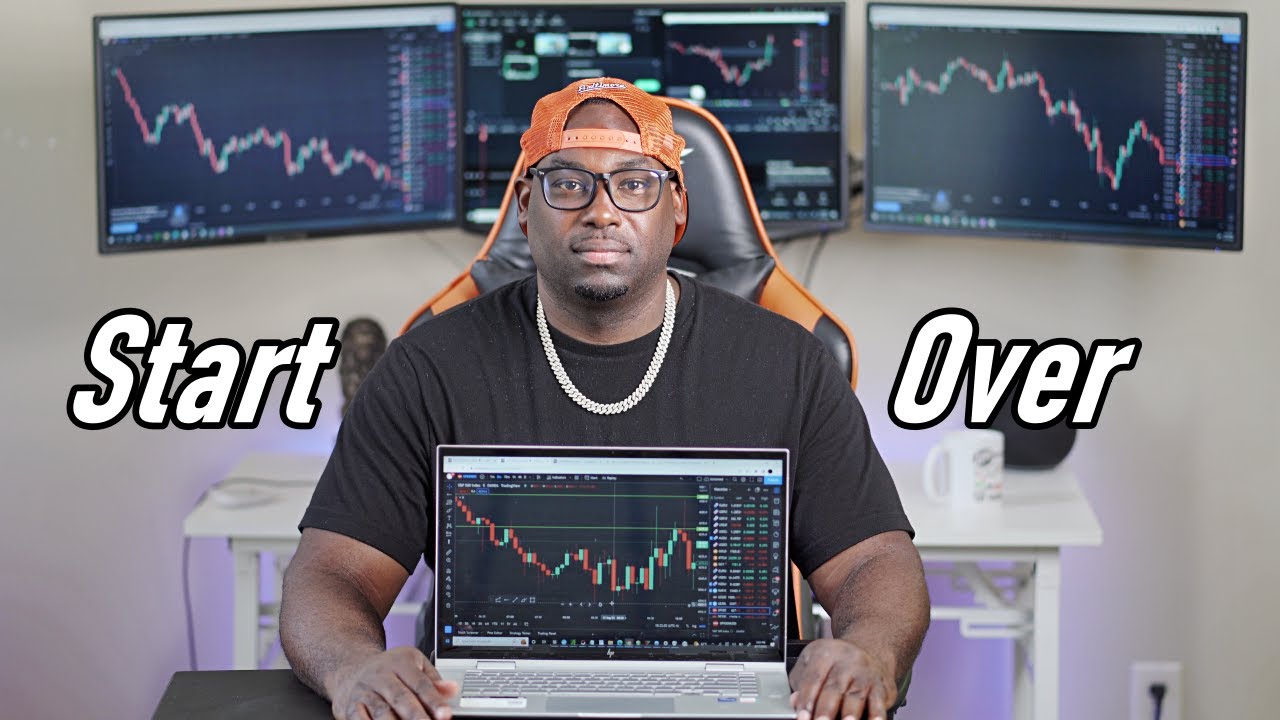How I Would Learn Day Trading (If I Could Start Over)
Unleash Your Creative Genius with MuseMind: Your AI-Powered Content Creation Copilot. Try now! 🚀
The Starting Point: Saving and Investing
In the world of trading, the first step is always the most crucial. If you were to start from scratch, the first thing you'd do is save up more money. This might mean working seven days a week, grinding it out, and saving every penny. The amount you start with doesn't have to be huge, but having a bit more can be beneficial. The average starting amount for traders ranges from $300 to $2000.
But saving isn't just about the quantity, it's about the quality. You'd look around your house, identify items you don't use anymore, and sell them. This could be anything from old clothes to your car. The point is to free up as much capital as possible to invest in your trading account.
Finding an Expert: Learning from the Best
The second step in this trading journey is to find an expert. You don't have to reinvent the wheel. If something works for someone else, it could work for you too. The fastest way to success is to follow someone who's already successful in the field you're trying to enter. If you want to be a trader, it's best to follow someone who's actually trading. This way, you can pick up the skills they have and understand the market in a deep way.
Learning and Adapting: The Journey of a Trader
The third step is to remind yourself that you're in the learning phase. Trading has four different stages: the learning stage, the testing phase, the profitable stage, and the master stage. When you get a new strategy, it's not about becoming a master trader overnight. You have to learn the market, understand the strategy, and get used to it.
Spending Time on the Demo: Building Your Skills
The fourth thing you'd do is spend more time on the demo. The demo is a virtual trading account that allows you to practice trading without risking real money. It's a great way to build your skills, get used to the market, and understand how to handle different market conditions.
Analyzing Your Trades: Learning from Your Mistakes
The fifth thing you'd do is look over your losing trades every single week. This might seem counterintuitive, but it's one of the most effective ways to improve. By analyzing your losses, you can figure out what went wrong and adjust your strategy accordingly.
Studying Your Winners: Understanding Your Success
The sixth thing you'd do is study your winners. Understanding why you're winning can help you recognize those special moments when they come up on the chart. This knowledge can make you a better trader.
Focusing on the Process: The Importance of Patience
The seventh thing you'd do is focus on the process. You can't just think about the money. If you lost money, it's going to be hard to take the next trade. You need to stop thinking about the money and focus on the process.
Studying Market Structure: Understanding the Market
The last thing you'd do is study market structure. You need to understand what the market is doing in real time. This includes understanding trends, ranging, breakouts, pullbacks, and reversals.
In conclusion, starting from scratch in trading involves saving money, finding an expert, learning and adapting, spending time on the demo, analyzing your trades, studying your winners, focusing on the process, and studying market structure. These steps will help you become a much better trader.
Remember, trading is a journey, not a destination. It's about learning, adapting, and improving. So, let's get started!

Related Recaps
- European politicians are trying to convince Beijing to put more pressure on the Kremlin
- Espert criticó con dureza a Javier Milei: “Es un populista más, un liberal poco serio”
- ✅MISA DE HOY lunes 20 de marzo de 2023, P. Rigoberto Rivera. En honor a San José.
- Pence: History will hold Trump accountable for Jan 6
- Mann Aangan Episode 34 | 2nd April 2023 (Subtitle Eng) | ARY Digital Drama